

Navigation:
- Presidential Plenary, Wednesday, May 28, 2025, 3:00 pm – 4:15 pm, Pacific
- Plenary I, Wednesday, May 28, 2025, 8:30 am – 10:00 am, Pacific
- Plenary II, Thursday, May 29, 2025, 8:15 am – 9:45 am, Pacific
- Plenary III, Thursday, May 29, 2025, 2:45 pm – 4:15 pm, Pacific
- Plenary IV, Friday, May 30, 2025, 10:45 am – 12:00 pm, Pacific
![]()
Presidential Plenary
New Horizons in Prevention Science: A Dialogue with Past, Current, and Future SPR Presidents
Wednesday, May 28, 2025, 3:00 pm – 4:15 pm, Pacific
Chair: Brittany Cooper, PhD, SPR President & Associate Professor, Department of Human Development, Youth and Family Extension Specialist, Washington State University
Presenters:
- Richard Catalano, PhD, University of Washington, Professor Emeritus, SPR Past President
- Phillip W. Graham, DrPH, RTI International, SPR President-Elect
- Margaret Kuklinski, PhD, University of Washington
- Leslie Leve, PhD, University of Oregon, SPR Past President

Brittany Cooper, PhD, SPR President & Associate Professor, Department of Human Development, Youth and Family Extension Specialist, Washington State University
Dr. Brittany Cooper is Associate Professor of Human Development, Youth and Family Extension Specialist, and Graduate Faculty in the Prevention Science PhD program at Washington State University. She is also currently the President of the Society for Prevention Research and co-leads the Northwest Prevention Technology Transfer Center. Dr. Cooper’s research, teaching, and outreach centers around the translation of prevention science for public health impact. For over a decade, she has collaborated with federal, state, and other community leaders to improve the field’s understanding of how best to support evidence-based prevention programs in diverse community settings.
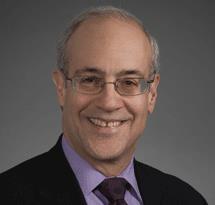 Richard Catalano, PhD, University of Washington, Professor Emeritus, SPR Past President
Richard Catalano, PhD, University of Washington, Professor Emeritus, SPR Past President
Richard Catalano, Jr., Ph.D. is Professor Emeritus in the School of Social Work, University of Washington and the co-founder of the Social Development Research Group. He received his bachelor’s degree in sociology from the University of Wisconsin, and his masters and PhD in sociology from the University of Washington. He is past-president of the Society for Prevention Research. For over 35 years, he has led research and program development to promote positive youth development and prevent problem behaviors. His work has focused on discovering risk and protective factors for behavioral health problems, designing and evaluating programs to address these factors, and using this knowledge to understand and improve prevention service systems in states and communities.
Dr. Catalano has served on the National Academy of Sciences Board of Children, Youth and Families and the NAS Consensus Study Committee on Fostering Healthy Mental, Emotional, and Behavioral Development Among Children and Youth; and has been a member of Substance Abuse and Mental Health Services Administration (SAMHSA) Center for Substance Abuse Prevention (CSAP) National Advisory Council. He was the prevention chapter editor of the Surgeon General’s Report “Facing Addiction: Alcohol, Drugs and Health”. He has served as a member of expert panels for federal and state government and foundations. He has published over 350 articles and book chapters. His work has been recognized by practitioners (1996 and 2016 National Prevention Network’s Award of Excellence); criminologists (Fellow of the Academy of Experimental Criminology, 2007 August Vollmer Award from the American Society of Criminology, and 2003 Paul Tappan Award from the Western Society of Criminology); prevention scientists (2001 Prevention Science Award, 2012 Presidential Award from the Society for Prevention Research), and social workers (elected fellow of the American Academy of Social Work and Social Welfare). Dr. Catalano has served as a board member of the Washington State Academy of Sciences. He is the co-developer of the parenting programs “Guiding Good Choices,” “Supporting School Success,” “Staying Connected with Your Teen,” and “Focus on Families;” the school-based program, “Raising Healthy Children;” and the community prevention system, “Communities That Care.”

Phillip W. Graham, DrPH, RTI International, SPR President-Elect
https://www.rti.org/expert/phillip-w-graham
Phillip W. Graham is the Center Director of RTI’s Center for Behavioral Health Epidemiology, Implementation, and Evaluation Research. He has more than 20 years of experience conducting community-based research and evaluation, with researching focusing on evaluating preventive interventions developed to reduce and prevent adolescent interpersonal violence and substance use.
Dr. Graham currently serves as the project director on several national cross-site evaluations assessing community efforts to reduce underage drinking, prescription drug misuse and abuse, marijuana use, and opioid deaths. He has also investigated the effects of witnessing community violence on perpetration, the development of ethnic identity among African American male adolescents as a protective factor, and the impact of comprehensive school-based interventions and services to promote healthy child development. Other research efforts have included examining the relationship between social capital and community violence; developing an evaluation toolkit to measure collective impact, and collaborating with the Robert Wood Johnson Foundation to understand how community social cohesion impacts the development of a shared value of health. His methodological focus includes the use of mixed-methods approaches and his research emphasizes the importance of culture, community context, systems change, and place-based strategies.
He is the current president-elect of the Society for Prevention Research and a founding board member for the National Prevention Science Coalition, and a board member of the Coalition for Social Science Associations.
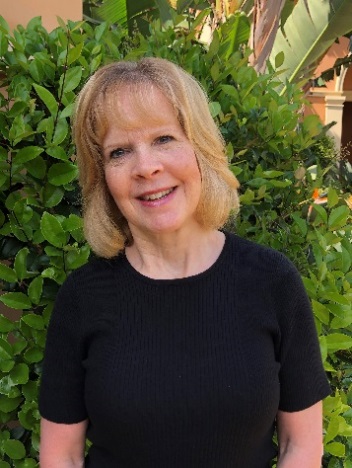
Margaret Kuklinski, PhD, University of Washington
https://socialwork.uw.edu/people/margaret-kuklinski/
Margaret Kuklinski is the Director of the Social Development Research Group and a Social Work Endowed Associate Professor in Prevention. Margaret Kuklinski’s research and intervention efforts are at the intersection of prevention science and health economics. Her work aims to promote positive developmental outcomes by demonstrating the long-term impact of effective community-based and family-focused intervention, identifying the level of investment needed to improve health and wellbeing through effective intervention, and building policy support for preventive interventions by demonstrating their benefits and costs.
Kuklinski is director of the School’s Social Development Research Group where she supports efforts to disseminate interventions to communities, families and agencies. For more than a decade, she has led or contributed to studies that promote healthy behaviors and positive development. She serves as Acting Director for the Center for Communities That Care and co-principal investigator on the longitudinal evaluation of the Communities That Care prevention system which has demonstrated impact on preventing drug use and antisocial behavior from adolescence into young adulthood. She is also co-principal investigator on a multisite trial testing the feasibility and effectiveness of implementing Guiding Good Choices, a prevention program for parents of adolescents, in three regionally and socioeconomically diverse healthcare systems. She currently co-chairs the Health Economics Working Group for a set of projects funded under NIDA’s HEAL Prevention Initiative aimed at preventing opioid misuse in adolescents and young adults.
As a health economist, Kuklinski has been involved in national efforts, conducted under the National Academies of Sciences, Engineering, and Medicine as well as the Society for Prevention Research, to establish best practices for cost, benefit-cost and cost-effectiveness analysis of interventions for children, youth, and families. She routinely consults and lectures on health economics and prevention science, and has served on the board of the Society for Prevention Research.
https://nasadad.org/wp-content/uploads/2022/06/DC-Update-May-20-2022_Public.pdf
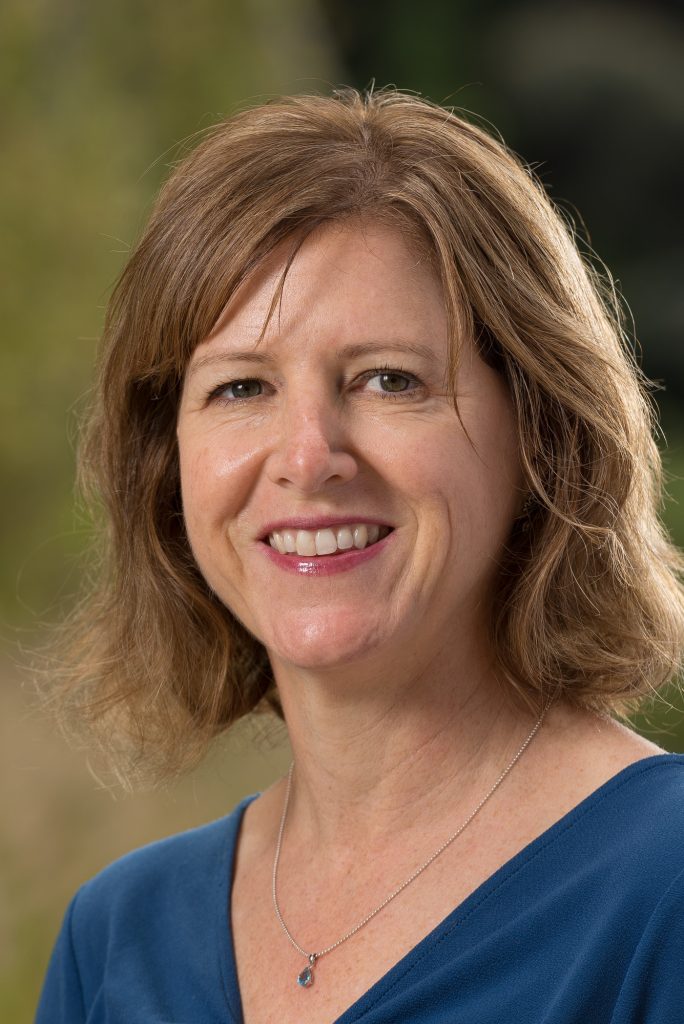 Leslie Leve, PhD, University of Oregon, SPR Past President
Leslie Leve, PhD, University of Oregon, SPR Past President
https://education.uoregon.edu/directory/faculty/all/leve
Professor Leve is the Lorry Lokey Chair in Education and a “double duck,” receiving her masters and doctorate at the University of Oregon in the ‘90s in the College of Arts and Sciences and returning to the university in 2013 as a professor in the College of Education.
Professor Leve is best known for her research on child and adolescent development, gene-environment interplay, and interventions for children, families, and communities. This includes preventive intervention studies with youth in foster care or juvenile justice system, adoption studies that examine the interplay between biological and social influences on development, and health intervention outreach programs for communities. She co-directs a Center on parenting in the context of opioid use. To date, she has published more than 250 scientific articles and 20 book chapters. Her research has been funded by grants from the National Institutes of Health, the National Institute of Justice, the U.S. Department of Education, and the Oregon Health Authority.
Professor Leve typically takes one new doctoral student, one new masters students, and three undergraduate students each year.
Plenary Session I
Wednesday, May 28, 2025, 8:30 am – 10:00 am, Pacific
Leveraging Data Science & Technology: Advancing equity and action when using AI in prevention science
Chairs: Sarah Lynne, PhD, University of Florida, and Holly Hagle, PhD, American Academy of Addiction Psychiatry
Speakers:
- Karla V. Saldana Ochoa, PhD, University of Florida
- Phebe Vayanos, PhD, University of Southern California
- Eric Rice, PhD, University of Southern California
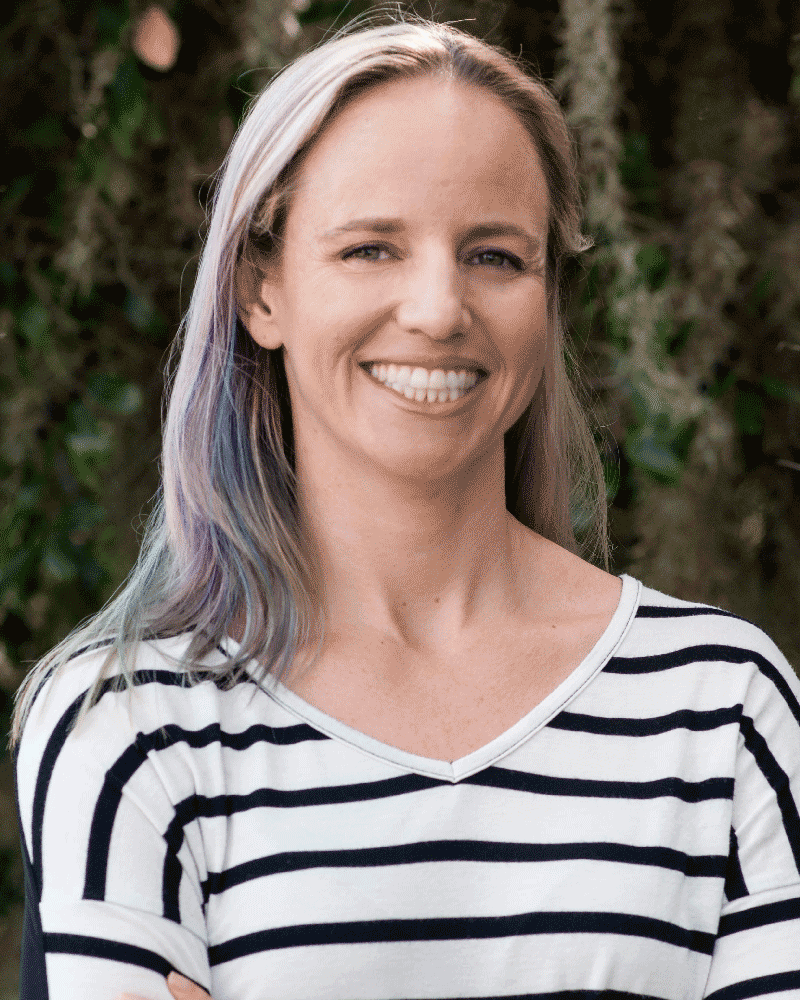 Sarah Lynne, PhD, University of Florida
Sarah Lynne, PhD, University of Florida
Sarah D. Lynne is an Associate Professor in the Department of Family, Youth and Community Sciences, College of Agricultural and Life Sciences, at the University of Florida. She is a developmental psychologist specializing in adolescence and healthy transitions to adulthood. During her postdoctoral fellowship at the Johns Hopkins School of Public Health, she gained expertise in evidence-based strategies to promote well-being and prevent risky behavior among young people. She also worked as a Society for Research in Child Development Policy Fellow providing her with a unique perspective regarding how policy can play a role in promoting youth well-being. She is the Co-Director of the Connection and Community Initiative, a University of Florida initiative funded by the Office of the Provost that aims to support student mental health through partnerships with students, staff, faculty, and administrators across UF. She is also an affiliate faculty of the University of Florida Prevention and Intervention Network, the chair-elect of the University of Florida Faculty Senate, and Fellow for the SEC ’s Academic Leadership Development Program. A primary goal of her research, teaching, outreach, and leadership is to promote health and well-being and reduce risk of violence and other negative outcomes. She does this by understanding how the context in which we are born, grow, learn, and live impacts people, relationships, families, and communities.
Using advanced quantitative statistical methods, Dr. Lynne conducts lifespan research on pathways to substance use and related mental, physical, and behavioral health problems complimenting original data collection with evaluations of large archival longitudinal datasets. She takes an ecological perspective, focusing on the interplay between individual characteristics, interpersonal relationships, and context across childhood and adolescence, with primary expertise in the biopsychosocial changes of adolescence. She has worked on the development, implementation, and evaluation of preventive interventions, including an ongoing evaluation of a teen pregnancy prevention program implemented in a rural Florida county. She has also collaborated with a team of researchers from the University of Florida and the Cherokee Nation on a community-based intervention to prevent youth alcohol use. In addition, she is leading a NIH/NCATS funded study evaluating the association between pubertal timing, brain development, and psychosocial/behavioral adjustment among girls 8 – 12 years old.
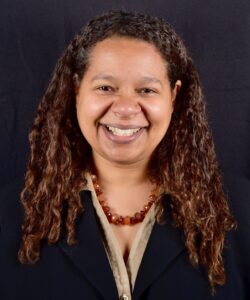 Holly Hagle, PhD, American Academy of Addiction Psychiatry
Holly Hagle, PhD, American Academy of Addiction Psychiatry
 Karla V. Saldana Ochoa, PhD, University of Florida
Karla V. Saldana Ochoa, PhD, University of Florida
Karla is an Ecuadorian architect; with a Master of Advanced Studies in Landscape Architecture from ETH Zurich. In June 2021, she finished her Ph.D. at ETH Zurich, which investigated the integration of Artificial and Human Intelligence to have a precise and agile response to natural disasters. Since August 2021, Karla is an Assistant Professor in the School of Architecture at the University of Florida; her teaching and research focus on investigating the interplay of Artificial and Human Intelligence in architectural practices at building and urban scale. Karla is the leading researcher at SHARE Lab; a research group focused on developing human-centered AI projects focused on design practices.
 Phebe Vayanos, PhD, University of Southern California
Phebe Vayanos, PhD, University of Southern California
I am an Associate Professor of Industrial & Systems Engineering and Computer Science at the University of Southern California, a Co-Director of the CAIS Center for Artificial Intelligence in Society, and a Co-Director of the ORAI interdisciplinary PhD Program in Artificial Intelligence and Operations Research. I hold a Viterbi Early Career Chair in Engineering and before that held a WiSE Gabilan Assistant Professorship. Prior to joining USC, I was a lecturer in the Operations Research and Statistics Group at the MIT Sloan School of Management, and a postdoctoral research associate in the Operations Research Center at MIT. I hold a PhD degree in Operations Research and an MEng degree in Electrical & Electronic Engineering, both from Imperial College London.
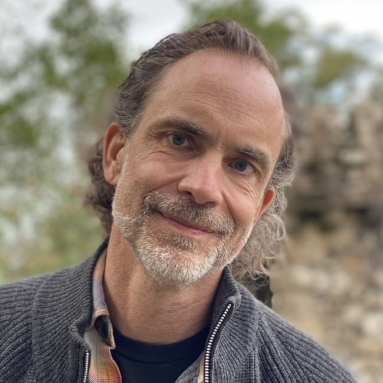 Eric Rice, PhD, University of Southern California
Eric Rice, PhD, University of Southern California
Eric Rice is a professor, the associate dean for research and the founding co-director of the USC Center for AI in Society, a joint venture of the USC Suzanne Dworak-Peck School of Social Work and the USC Viterbi School of Engineering. Rice received a BA from the University of Chicago, and an MA and PhD in Sociology from Stanford University. He was a postdoctoral fellow at the University of California, Los Angeles. He joined the USC faculty in 2009.
Rice specializes in social network science and theory, as well as community-based research. His primary focus is on youth experiencing homelessness and how issues of social network influence may affect risk-taking behaviors and resilience. For several years he has worked with colleague Milind Tambe to merge social work science and AI, seeking novel solutions to major social problems such as homelessness and HIV.
Rice is the author of more than 150 peer-reviewed articles in such publications as the American Journal of Public Health, AIDS and Behavior, Journal of Adolescent Health, Pediatrics, and Child Development, and the Journal of the Society for Social Work Research. He is the recipient of grants from the National Institute of Mental Health, the California HIV/AIDS Research Program, the Army Research Office and other agencies. In 2012, he received the John B. Reid Early Career Award through the Society for Prevention Research. In 2021, he was inducted as a Fellow of the Society for Social Work Research.
Since 2002, Rice has worked closely with homeless youth providers in Los Angeles and many other communities across the country. He is the creator of the TAY Triage Tool — to identify high-risk homeless youth for prioritizing them for supportive housing — which was incorporated into Orgcode’s Next Step Tool for homeless youth. Rice’s primary collaborators in Los Angeles are the Los Angeles Housing Service Authority, the United Way’s Home for Good, the LA LGBT Center, My Friend’s Place and Safe Place for Youth.
Plenary Session II
Thursday, May 29, 2025, 8:15 am – 9:45 am, Pacific
Leveraging Data Science & Technology: Developing, implementing, evaluating, and disseminating tailored prevention programs and intervention services
Optimizing tailored prevention programs and intervention services through data science and technology
Chairs: Krista Mehari, PhD, Venderbilt University, and Elizabeth Weybright, PhD, Washington State University
Speakers:
- Patrick M. Carter, MD, University of Michigan Medical School
- Deborah Tate, PhD, University of North Carolina, Gillings School of Global Public Health
- Kate Guastaferro, PhD, New York University
To maximize the impact of programs and services, prevention scientists use tailoring and adaptation to increase precision and maximize impact of programs and services.. Mobile, online, and other technologies take prevention to the next level by providing innovative opportunities to design, implement, evaluate, and disseminate tailored programs and services that address what works for whom, under what conditions, and for which outcomes. The speakers in this plenary session will discuss a range of tailoring and adaptation approaches, from clinical use to community implementation and scaling up. Their focus areas include prevention of firearm-related violence and other risky behaviors among youth; body weight regulation to reduce disease risk; and prevention of child maltreatment.
The first speaker, Patrick Carter, will describe the development and impact of innovative m-health applications that use intensive data collection and geolocation for intervention tailoring. The second speaker, Deborah Tate, will discuss tailoring multiple components of interventions, such as timing, messaging, and functioning, through the use of generative AI, wearable technologies, and other passive data. The third speaker, Kate Guastaferro, will discuss generalization of intervention optimization trials in order to scale towards population-level prevention.
Speakers will conclude with valuable insights and practical strategies for applying data science and technology to advance prevention. They will highlight opportunities to leverage data science and technology in developing, implementing, evaluating, disseminating, and scaling up tailored prevention programs and intervention services.
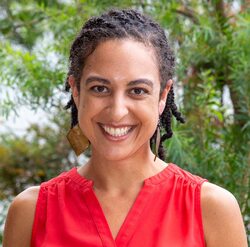 Krista Mehari, PhD, Venderbilt University
Krista Mehari, PhD, Venderbilt University
Dr. Krista Mehari is an Assistant Professor in the Department of Psychology and Human Development at Vanderbilt University and a licensed clinical psychologist. Dr. Mehari’s work focuses on improving the safety and well-being of youth from minoritized groups in overburdened, underresourced communities, with a specific focus on youth violence and firearm injury prevention. She leverages participatory action research to partner with communities with the goal of improving the impact and relevance of school- and community-based violence prevention and positive youth development strategies. Dr. Mehari has a strong interest in social-cultural factors that predict or prevent youth violence. Another interest is the effective and culturally responsive measurement of violence and associated predictors. Her work has been funded by the National Institutes of Health, the Centers for Disease Control and Prevention, The John Templeton Foundation, the Government of India, the Walmart Foundation, and others.
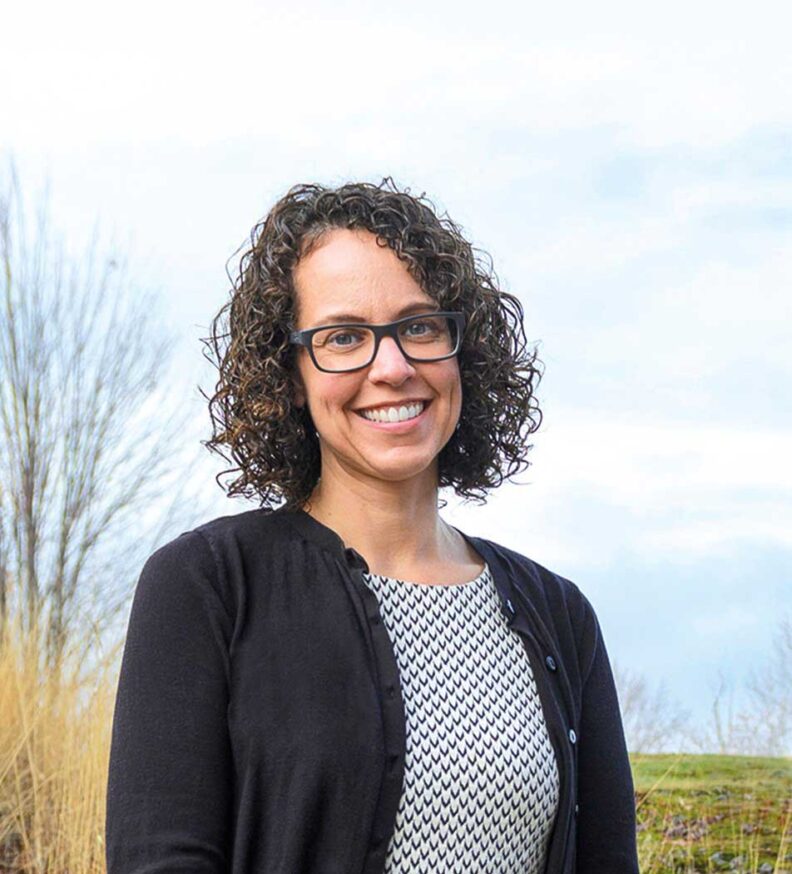 Elizabeth Weybright, PhD, Washington State University
Elizabeth Weybright, PhD, Washington State University
Grounded in prevention science and systems theory, my research focuses on adolescent health promotion and prevention. This spans a) basic research on topics such as youth behavior (e.g, rural youth firearm engagement) and leisure experiences (e.g., boredom, motives); b) dissemination, adaptation, and implementation of substance use prevention and positive youth development programs; and c) building capacity among professionals and systems for delivery of evidence-based approaches for health promotion and prevention. Building on roles of Extension specialist and former unit director, my work advances the concept of Health Extension and using the Extension network and related strengths to more effectively deliver community care in rural areas to address health inequities. See our recently released edited book on Health Extension for more information (https://msupress.org/9781611865158/health-extension/).
Since 2014, Dr. Weybright has been funded by state agencies (WA HCA), federal agencies (USDA, SAMSHA, CDC), and foundations (National 4-H Foundation, Grandmothers Against Gun Violence) for applied research and programming totaling $5.6M as principal investigator and another $7.8 as co-investigator. She has published 71 peer-reviewed journal articles, Extension publications, and edited works.
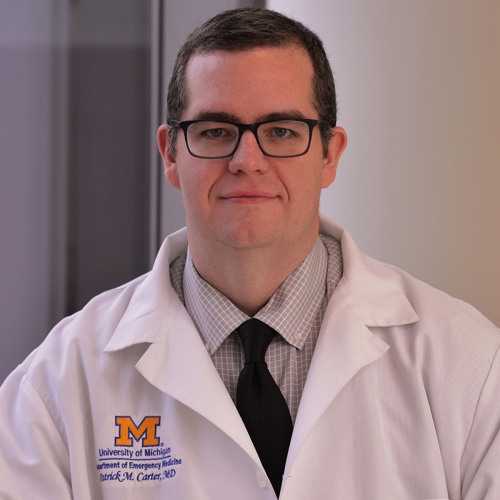 Patrick M. Carter, MD, University of Michigan Medical School
Patrick M. Carter, MD, University of Michigan Medical School
Dr. Patrick Carter is a Professor of Emergency Medicine (School of Medicine) and Health Behavior & Health Equity (School of Public Health) at the University of Michigan. He is the Co-Director of the University of Michigan Institute for Firearm Injury Prevention and the Co-Director of the CDC-funded University of Michigan Injury Prevention Center. Dr. Carter’s research is within the field of firearm injury prevention, specifically the development, testing, and implementation of emergency department (ED)‐based interventions to decrease firearm violence, youth violence, and associated risk behaviors such as substance use among high‐risk urban youth populations. He also has a line of research focused on using intensive longitudinal data, collected via innovative m-health applications, to characterize epidemiological and contextual factors underlying adolescent risky firearm behaviors. He is the Past-Chair of the ACEP Trauma and Injury Prevention Section, serves as an Assistant Editor for the Annals of Emergency Medicine, and has served as a member of the Technical Advisory Group focused on developing a firearm research agenda for the American College of Emergency Physicians. Dr. Carter has research funding as a PI or Co-I on grants from NIDA, NIAAA, CDCP, and NICHD, all focused within the field of violence and injury prevention.
 Deborah Tate, PhD, University of North Carolina, Gillings School of Global Public Health
Deborah Tate, PhD, University of North Carolina, Gillings School of Global Public Health
Deborah Tate is a professor in the Department of Nutrition. She holds a joint appointment in the Department of Health Behavior and a faculty appointment at the Nutrition Research Institute. Dr. Tate is a behavioral scientist, receiving her Ph.D. in Clinical Psychology. Her research focuses on two main areas: (a) strategies for improving both short and long-term body weight regulation to reduce disease risks and (b) the development and translation of programs as alternatives to clinic-based care using digital and wearable technologies. She has been continuously funded in obesity, diabetes prevention and digital health intervention research by the National Institutes of Health since 2000 and is known internationally for her work in web and mobile interventions. Dr. Tate has numerous papers published in major nutrition and medical journals such as the Journal of the American Medical Association, the New England Journal of Medicine, JAMA-Internal Medicine, Obesity, the American Journal of Clinical Nutrition, Health Psychology, and others. Dr. Tate is faculty director of the UNC Weight Research Program, and for the Communications for Health Applications and Interventions (CHAI) Core a shared resource serving faculty in both the Nutrition Obesity Research Center and the Lineberger Comprehensive Cancer Center. She teaches a graduate-level course entitled “mHealth for Behavior Change”.
Dr. Tate conducted several of the first randomized trials using the Internet and new technologies to deliver behavioral treatments for obesity. She continues to conduct studies to determine which features of digital programs contribute to efficacy, how to use wearable and other passive data to inform tailoring, and what types of intervention messages and strategies work best for whom and in what contexts. Her work has focused on bringing greater specificity to digital intervention science and uses advanced intervention methodologies such as the Multiphase Optimization Strategy, multiple randomized trials (MRT) and adaptive (SMART) designs to optimize digital obesity prevention and treatment interventions. Her recent work has focused on precision public health messaging for just-in-time-adaptive interventions and precision nutrition and obesity approaches which offer high degrees of individual tailoring.
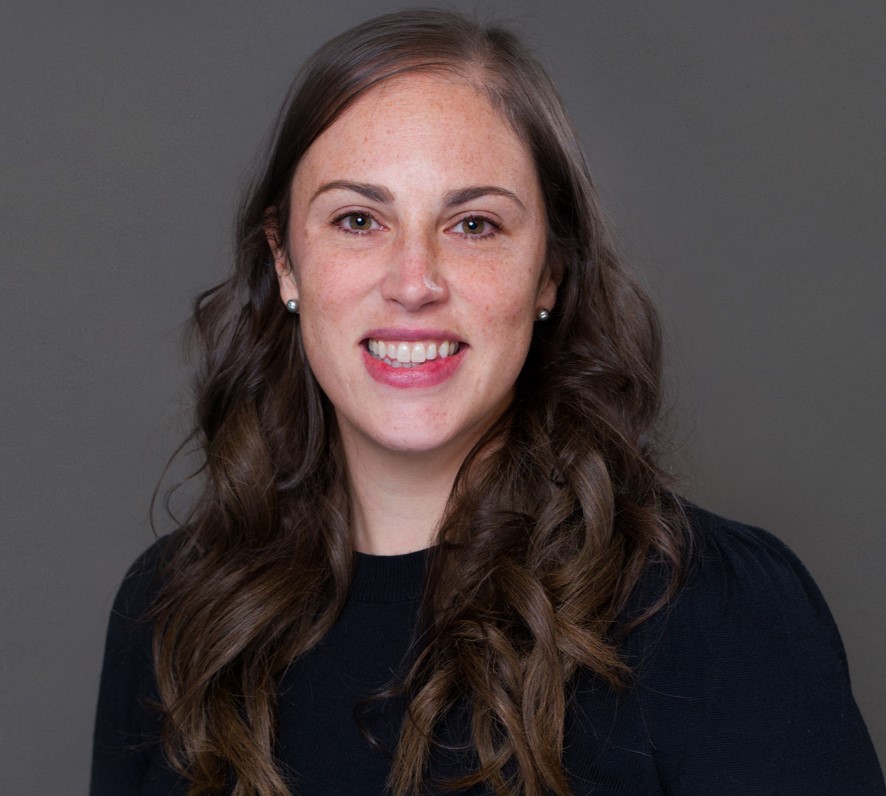 Kate Guastaferro, PhD, New York University
Kate Guastaferro, PhD, New York University
Kate Guastaferro, PhD is an intervention scientist by training, her work is devoted to the development, optimization, implementation and evaluation of effective, efficient, affordable and scalable interventions with high public health impact. She is an expert in the multiphase optimization (MOST) strategy and her expertise is in parent-focused, multicomponent behavioral interventions to prevent child maltreatment. Dr. Guastaferro co-led a statewide trial focused on the coordinated implementation of three evidence-base child sexual abuse prevention programs; included in this trial was the parent-focused child sexual abuse program that she developed, piloted and evaluated. Her current work is focused on the integration of intervention optimization into the prevention of child maltreatment.
Prior to joining NYU, Dr. Guastaferro was an assistant research professor in human development and family studies at the Pennsylvania State University, and an affiliate of its Prevention Research Center and Child Maltreatment Solutions Network. In 2020, she was awarded the Victoria S. Levin Award for Early Career Success in Young Children’s Mental Health Research from the Society for Research in Child Development. She has been published in Child Maltreatment, Translational Behavioral Medicine, and the American Journal of Public Health.
Dr. Guastaferro received her PhD and MPH from Georgia State University’s School of Public Health, and her BA in anthropology from Boston University. She also completed a year of postdoctoral training at the Pennsylvania State University.
Plenary Session III
Thursday, May 29, 2025, 2:45 pm – 4:15 pm, Pacific
Leveraging Data Science & Technology: Collecting, integrating, and understanding data using innovative study designs, collection modalities, and analysis approaches
Swimming in the Deep End (with a Lifejacket): Learning from Others’ Journeys to Leveraging Innovative Data Science and Technology to Enhance Your Scientific Vision and Honor Prevention Science’s Values
Chairs: Bethany Bray, PhD, University of Illinois Chicago
Speakers:
- Bonnie J. Dorr, PhD, University of Florida
- Marina Tolou-Shams, PhD, University of California, San Francisco
Prevention scientists are poised to lead multidisciplinary, collaborative, and international teams that advance the development and application of data-analytic and technological innovations to benefit all individuals and communities. Collaboration across diverse disciplines and partners, including prevention scientists, community and practice partners, data scientists, methodologists, statisticians, engineers, computer programmers, and policymakers, is necessary to reveal the knowledge contained in complex data sets. Team scientists leveraging advances in data science and technology are collecting, integrating, and understanding data using innovative study designs, collection modalities, and analysis approaches. These innovations have the potential to improve the development, testing, implementation, and scale-up of effective prevention programs and services. Devices such as smartphones and ambulatory assessment devices (e.g., Fitbits, alcohol monitors) have made real-time data collection a daily fact of life. Tools such as social media, community-driven data dashboards, and online data warehouses have made data integration across multiple sources a daily possibility. Methods such as daily diaries and ecological momentary assessment have become routinely possible in prevention science. Volumes of data on momentary and longer-term behaviors, real-time and historical locations, and biological processes can be collected efficiently and with limited intrusion. These data can then be integrated with community-based contextual data (e.g., regional socioeconomic deprivation, migration patterns, large-scale weather events), neurobiological and genetic data, and/or administrative data obtained from local, state, or national resources. As new data collection modalities come online and need to be integrated with existing modalities, it is critical that high-quality, methodologically sound study designs, data integration techniques, and analysis approaches are developed and applied. In this third plenary session, speakers will discuss their journeys to developing scientific visions that require emerging technologies, building broad partnerships required to enact their visions, and integrating innovations such as natural language processing and generative artificial intelligence (AI) while honoring individuals and communities and working with and within systems in which they are embedded.
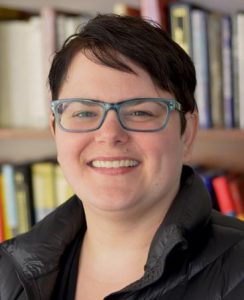 Bethany Bray, PhD, University of Illinois Chicago
Bethany Bray, PhD, University of Illinois Chicago
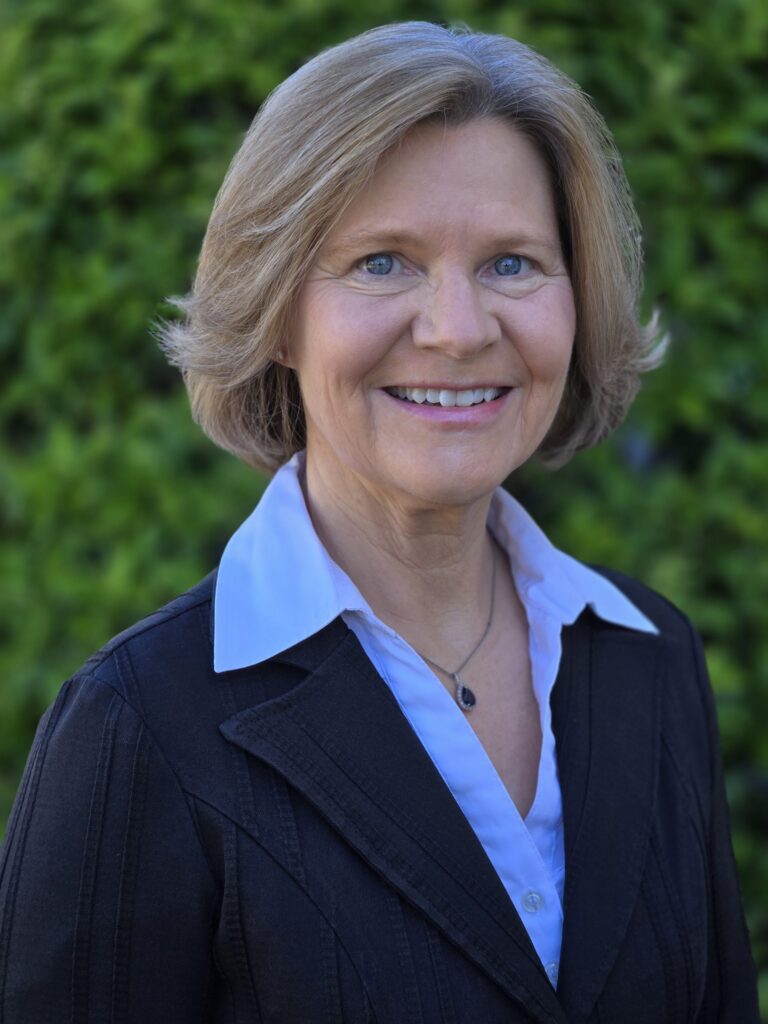 Bonnie J. Dorr, PhD, University of Florida
Bonnie J. Dorr, PhD, University of Florida
Bonnie J. Dorr is a Professor of Computer Science at the University of Florida and member of the Florida Institute for National Security (FINS). Dr. Dorr leads the Natural Language Processing (NLP) Research Laboratory. Her research and project management experience includes deep-language understanding and semantics, large-scale multilingual processing, summarization, and explainable AI and NLP. She has carried out seminal work in cross-language divergence detection, machine translation, paraphrasing and automatic evaluation metrics.
Together with her colleagues and students, Dr. Dorr has established the new field of Cyber-NLP, bringing together expertise at the intersection of cyber, social computing, AI, and NLP. Her interests focus on cyber-event extraction and natural language understanding for detecting attacks, discerning intentions of attackers, thwarting social engineering attacks, and detecting stances and other indicators of influence campaigns. As PI of an IARPA CAUSE team (ELLIPSE), she has focused on generation of warning narratives to security analysts. She has led and currently leads projects in several recent DARPA programs including SocialSim (SimON), SIFT (PERFECTA), ASED (PANACEA), ASIST (PEPT and UPSTAGE), and INCAS (RADII).
Prior to UF, Dr. Dorr was Associate Director and Senior Research Scientist at the Florida Institute for Human and Machine Cognition, where she continues to hold an affiliate Senior Research Scientist position. She was also on the faculty at the University of Maryland, where she is Professor Emerita in the Institute for Advanced Computer Studies and the Department of Computer Science. She was an associate dean of the College of Computer, Mathematical and Natural Sciences, and co-founded the Computational Linguistics and Information Processing Laboratory. She was also principal scientist for two years at the Johns Hopkins University Human Language Technology Center of Excellence.
In 2011 she became a program manager at the Defense Advanced Research Projects Agency (DARPA), overseeing research in human language technology. Her significant DARPA projects include Broad Operational Language Translation (BOLT), Deep Exploration and Filtering of Text (DEFT), Multilingual Automatic Document Classification, Analysis, and Translation (MADCAT), and Robust Automatic Transcription of Speech (RATS).
Professor Dorr is a Sloan Fellow, an NSF Presidential Faculty (PECASE) Fellow, and a former president of the Association for Computational Linguistics. She has served on the Executive Council of the Association for Advancement of Artificial Intelligence (AAAI) and on the Executive Board of the Association for Computational Linguistics (ACL). She was elected AAAI Fellow in 2013, ACL Fellow in 2016, and ACM Fellow in 2020, and graduated in Class XXXIII of Leadership Florida in 2015. She was named by DARPA to the Information Science and Technology (ISAT) Study Group in 2020.
 Marina Tolou-Shams, PhD, University of California, San Francisco
Marina Tolou-Shams, PhD, University of California, San Francisco
Dr. Tolou-Shams is the Kilroy Realty Professor of Psychiatry and Vice Chair of Community Engagement, Outreach and Advocacy in the Department of Psychiatry and Behavioral Sciences (DPBS) at UCSF. She is also Deputy Vice Chair for Research in the DPBS at Zuckerberg San Francisco General Hospital (ZSFG). From 2015-2022, she served as Director of the UCSF Division of Infant, Child and Adolescent Psychiatry (ICAP) at ZSFG and from 2006-2015 she served as Director of the Rhode Island Family Court (RIFC) Mental Health clinic which she started as a cross-system collaboration between Brown Medical School and the RIFC. Dr. Tolou-Shams received her Ph.D. in Clinical Psychology in 2004 from the University of Illinois at Chicago and is trained as a pediatric and forensic psychologist and has many years of clinical experience with assessing and treating underserved adolescents and their families. Her 20 years of research experience has broadly focused on developing and testing integrated mental health, substance use, sexual and reproductive health prevention and treatment interventions (at individual, family and systems-levels) for youth and families in contact with the legal and/or child welfare systems. Dr. Tolou-Shams currently directs the UCSF Juvenile (in)Justice Behavioral Health lab (www.jjbh.org) and is PI of several active NIH-funded trials aimed toward improving behavioral health services access and outcomes and reducing health disparities for these youth. Specific emphasis includes gender and trauma-responsive interventions for girls in the juvenile legal system, studying the impact of structural racism and discrimination on behavioral health outcomes and services utilization, and identifying ways to leverage technology to improve access to behavioral health care for system-involved youth and families. Dr. Tolou-Shams is also involved in the UC Brain and Behavioral Health Consortium; a multi-UC campus initiative that aims, through rigorous research, education, clinical care and workforce development, to improve CA population behavioral health outcomes across the lifespan.
Plenary Session IV
Friday, May 30, 2025, 10:45 am – 12:00 pm, Pacific
Prioritizing Ethics and Equity as Critical Responsibilities of Prevention Scientists Advancing the Development and Application of Data Science and Technological Innovations
Moderators:
- Bethany C. Bray, PhD, Associate Director for Scientific and Infrastructure Development, Institute for Health Research and Policy, University of Illinois Chicago
- Brittany R. Cooper, PhD, Associate Professor of Human Development, Department of Human Development, Washington State University
Speakers:
- Bonnie J. Dorr, PhD, Professor of Computer Science, Department of Computer and Information Science and Engineering, University of Florida
- Kate Guastaferro, Assistant Professor of Social and Behavioral Sciences, School of Global Public Health, New York University
- Marina Tolou-Shams, Kilroy Realty Professor of Psychiatry, Department of Psychiatry and Behavioral Sciences, University of California, San Francisco
- Phebe Vayanos, PhD, Associate Professor of Industrial and Systems Engineering and Computer Science, University of Southern California
New and innovative opportunities for prevention science research, practice, and policy are emerging rapidly with advances in data science and technology. Prevention scientists are leveraging data science techniques, and the technologies that make them possible, to advance and accelerate real-time data collection, analysis, prediction, and automation and to create interactive tools for tailored prevention and treatment. Importantly, prevention scientists have a responsibility to critically evaluate both the potential benefits and unintended negative consequences to society of artificial intelligence (AI) and related data and technologies. Overall, advances in AI and related data and technologies provide unprecedented opportunities to advance prevention science across diverse settings, including justice systems, schools, primary care, and treatment centers. However, the collection, analysis, interpretation, and quality control of data present challenges that require the development of new ethical paradigms guiding infrastructure, training, team science, and data sharing that prioritize equity. As our opportunities grow, so do our ethical and practical challenges (e.g., algorithmic bias, data sharing, education and training) and the need to address equitably these challenges and their implications for individuals, families, communities, practices, and policies. Multidisciplinary partnerships, collaborative approaches, and ongoing, open dialogue are cornerstones of the Society’s continued focus on equity and are imperative to address the challenges of the rapidly changing landscape of data and technology in prevention science. In this final plenary session, speakers from the first three plenary sessions return to participate in an in-depth panel discussion of key ethical issues and lessons-learned in their own work and to provide their thoughts on ethical dilemmas provided by the moderators and audience.
